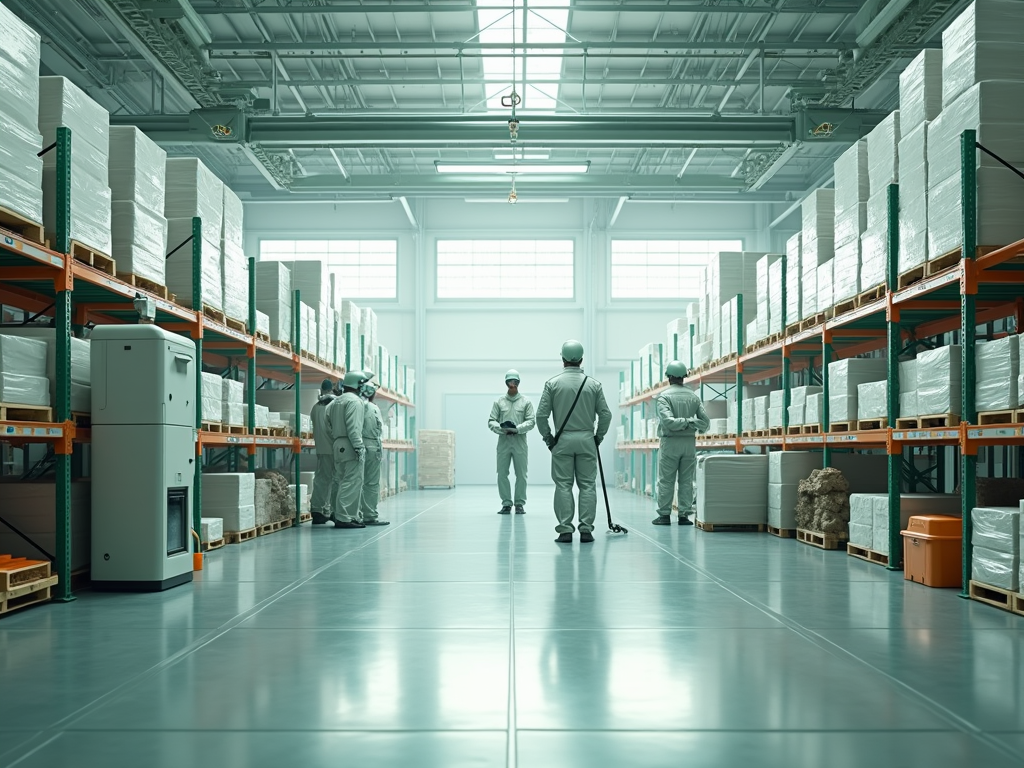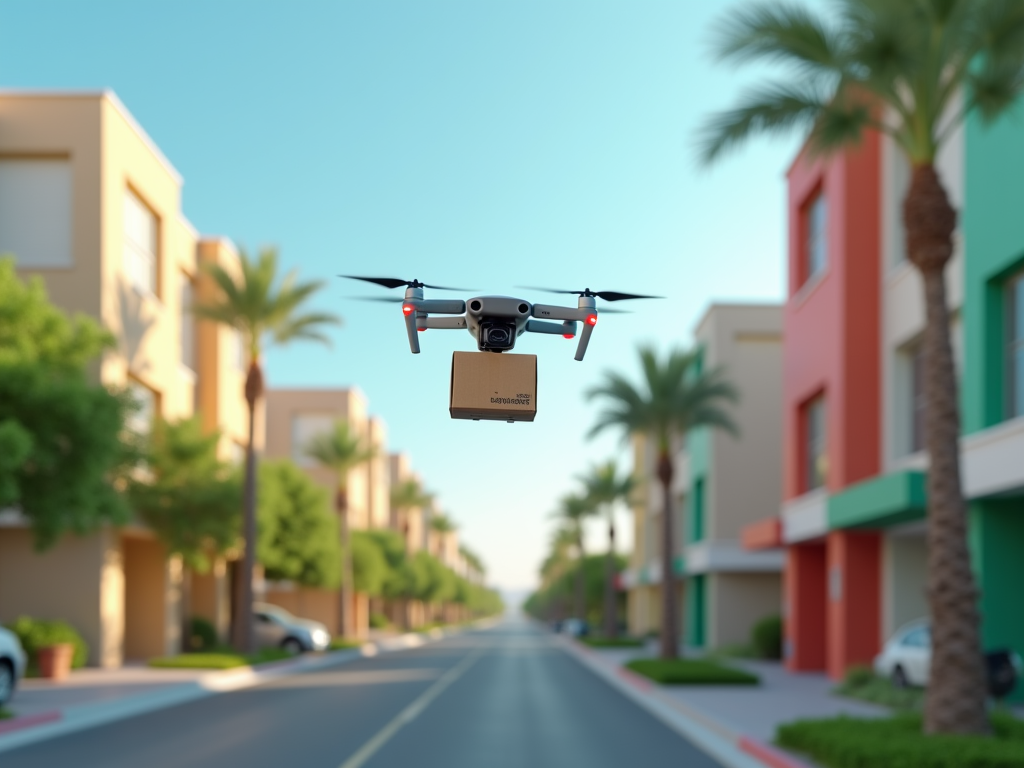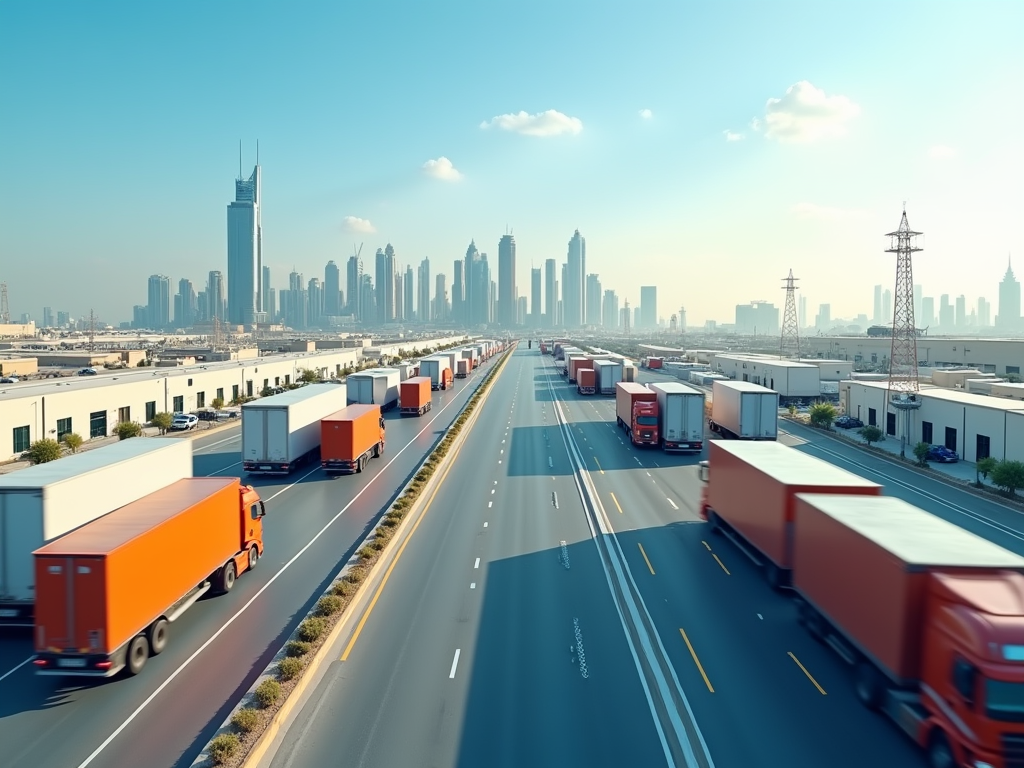Dubai’s logistics industry is on the brink of a transformative era, characterized by rapid advancements in technology and an ever-expanding marketplace. With its strategic location bridging Europe, Asia, and Africa, along with major investments in infrastructure, Dubai presents a unique set of opportunities for growth in logistics. This article delves into the prospects for this dynamic sector, exploring innovations, infrastructure development, and strategic initiatives that underscore its promising future.
Technological Innovations Driving Growth

A significant driving force behind the growth of Dubai’s logistics industry is the adoption of advanced technologies. Automation, artificial intelligence (AI), and the Internet of Things (IoT) are redefining traditional logistics processes, increasing efficiency and reducing operational costs. Several key innovations include:
- Warehouse Automation: The use of robotics and automated storage solutions is enhancing inventory management and speeding up order fulfillment.
- Blockchain Technology: This technology is improving transparency and security in supply chain management, enhancing trust among stakeholders.
- AI and Predictive Analytics: AI helps businesses predict demand and optimize delivery routes, significantly cutting down logistics time.
By integrating these technologies, logistics companies in Dubai are not only streamlining their operations but also setting new standards for the industry globally. This technological shift will continue to position Dubai as a logistics hub, attracting more global players to invest in the region.
Strategic Infrastructure Development

The infrastructure in Dubai is undergoing robust development aimed at supporting the logistics sector. The Dubai Logistics City (DLC) is an integral part of this growth. Envisioned as a specialized logistics hub, DLC is designed to accommodate logistics companies with state-of-the-art facilities. The transportation networks, including roads, ports, and airports, are also seeing significant upgrades:
- Expansion of the Jebel Ali Port, enhancing its capability to handle larger vessels.
- Improvements to Dubai International Airport, one of the busiest in the world for freight.
- Development of dedicated freight corridors to expedite ground transportation.
This ongoing investment in infrastructure not only enhances the efficiency of logistics operations but also boosts the attractiveness of Dubai as a global logistics center, catering to a diverse range of industries and businesses.
Regional Trade Agreements and Economic Diversification
Dubai’s strategic position allows it to benefit from numerous regional trade agreements that facilitate easier access to markets across the Middle East, Asia, and Africa. The UAE’s efforts in economic diversification, moving from oil dependence to a more diversified economy, further support logistics growth. Key initiatives include:
- Greater Arab Free Trade Area (GAFTA): Providing reduced tariffs and improved trade opportunities across member states.
- Gulf Cooperation Council (GCC): Strengthening regional trade ties among the six Gulf nations.
- International Trade Agreements: Collaborations with countries outside the region to bolster exports and imports.
These strategic agreements are set to yield considerable benefits for Dubai’s logistics sector, enabling companies to tap into new markets and expanding their operational reach.
Sustainability and Green Logistics Initiatives
As global awareness of environmental issues rises, sustainable practices in logistics are becoming paramount. Dubai recognizes the necessity of green logistics and is implementing initiatives to reduce the carbon footprint of logistics operations. Key sustainability efforts include:
- Investment in electric and hybrid vehicles for transportation.
- Adoption of energy-efficient technologies in warehouses and distribution centers.
- Utilization of renewable energy sources to power logistics facilities.
These initiatives not only align with global sustainability goals but also help companies in Dubai enhance their brand image and meet the demands of environmentally conscious consumers. The future of logistics in Dubai will increasingly focus on sustainable practices as a vital component of business strategy.
The Role of E-Commerce in Logistics Growth
The e-commerce boom has dramatically transformed the logistics landscape in Dubai, creating new opportunities for growth. With increasing online shopping habits and expectations for fast deliveries, logistics companies are adapting their operations accordingly. Notable trends include:
- Last-Mile Delivery Innovations: Enhanced delivery services tailored for quick and efficient last-mile logistics.
- Partnerships with E-Commerce Platforms: Collaborations that streamline distribution channels and improve service offerings.
- Use of Data Analytics: Leveraging customer data to optimize inventory and improve delivery efficiency.
The growing synergy between logistics and e-commerce in Dubai is expected to drive continued investment and innovation, making it a crucial aspect of the industry’s future.
Conclusion
Dubai’s logistics industry is poised for significant growth, driven by technology, strategic investments in infrastructure, regional trade agreements, sustainability initiatives, and the e-commerce boom. As companies adapt to these changes, the sector will continue to evolve, presenting numerous opportunities for businesses to thrive. The outlook is bright for Dubai as it cements its position as a leading logistics hub in the region and beyond.
Frequently Asked Questions
1. What role does technology play in Dubai’s logistics future?
Technology is pivotal, driving efficiency and reducing costs through automation, AI, and IoT, which streamline processes and enhance overall productivity.
2. How is infrastructure improving in Dubai’s logistics sector?
Infrastructure enhancements, such as expansion of ports and airports, are designed to support larger logistics operations and facilitate faster transportation.
3. What sustainable practices are being adopted in logistics?
Logistics companies are adopting green practices like electric vehicles, energy-efficient facilities, and renewable energy, reducing their environmental impact.
4. How does e-commerce influence logistics growth in Dubai?
The e-commerce sector is driving logistics evolution, prompting innovations in last-mile delivery and partnerships that enhance operational capabilities.
5. What economic agreements benefit Dubai’s logistics industry?
Agreements like GAFTA and GCC strengthen trade relations, making it easier for logistics companies to access diverse markets and optimize operations.
